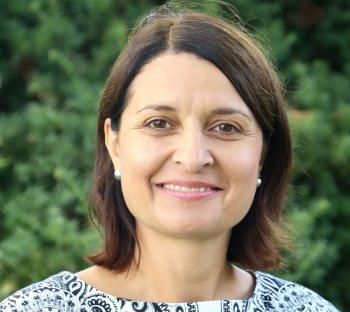A US-based Professor, Daniela Dimitrova has charged lecturers of Ghana Institute of Journalism (GIJ) faculty to ensure they publish their research work.
This was in a lively interaction last Wednesday on the topic “All you ever wanted to know about research publications”.
The online forum was organised by the Office of Research at the Institute with support from the school’s management.
The goal of the forum was to provide an open forum for faculty to learn about the nitty gritty of scholarly publications as the institution seeks to become a hub for cutting edge research in the area of media and communication studies.
Professor Dimitrova is the current editor of one of the most highly rated, regarded and arguably at the most prestigious journal in journalism and mass communication, the Journalism and Mass Communication Quarterly (JMCQ).
JMCQ is the oldest mass communication journal in the world. She is also a full professor at Iowa State University in the United States.
Professor Dimitrova advised faculty to familiarise themselves with journals they intend to send their manuscripts, start with lower tier but quality journals and produce rigorous work that will not immediately be desk-rejected.
She nodded to the low acceptance rate of articles from Africa. Professor Dimitrova encouraged African scholars to stretch their studies beyond country-specific or narrow-focused studies.
One way to make manuscripts compelling, she stated, was to expand research inquiries by making broader connections while adding context.
This, she said, will make such publications more appealing.
"I will advise people to focus on the contribution in terms of theory… in terms of methods.
One of the common mistakes non-US scholars make is emphasizing the country of study rather than the contribution to theory or methods” she said.
She added that aspiring scholars should familiarize themselves with the nature of articles in particular journals to improve their chances of getting published.
“Get used to reading the type of research articles...looking at the style to start seeing what has been published. Don’t hesitate to contact the editor if you would like a clarification..." she stressed.
Participants asked questions after the presentation. Questions were mostly related to how to craft efficient research topics, how to engage in research collaborations, how to identify the right journal for publication and standards expected.
Professor Dimitrova also used the opportunity to introduce faculty to JMCQ and took them through publication guidelines.
Some faculty who took part said the event was timely and highly beneficial. Dr Benedine Azanu, a member of the journalism faculty at GIJ, expressed her delight and appreciation.
“The presentation was insightful and a wonderful learning experience. There was enough revealing information that is beneficial to
Latest Stories
-
Nayiri renews call for total lifting of Walewale curfew as youth demand regional minister’s removal
2 minutes -
‘I didn’t deserve it’ – Baba Rahman on controversial AFCON 2021Q callup
7 minutes -
Fuel prices set to rise sharply in next pricing window – OMCs warn
8 minutes -
Security gaps undermining 24-hour fuel service – OMCs
11 minutes -
UNDP proposes strategies to bridge Ghana’s development financing gaps
37 minutes -
Today’s Front pages: Wednesday, June 18, 2025
37 minutes -
Four in 10 children globally will be in Africa by 2050 – UNICEF
51 minutes -
Baba Rahman urges GFA to prioritise strategic planning for Ghana Premier League
53 minutes -
Ghana seeks EU support to boost green energy production
55 minutes -
TUC affirms commitment to advance maternity protection in Ghana
57 minutes -
BoG to enforce shareholder forfeiture in major reforms against loan defaults
58 minutes -
Mahama attributes Fitch upgrade of Ghana to prudent economic management
58 minutes -
Stop thinking about election 2028 now; apologise sincerely to Ghanaians first – Omane Boamah to NPP
1 hour -
Fitch upgrade: Finance Minister promises full revival of Ghana’s economy
1 hour -
Maiden Ghana Herbal Conference slated for November 2025
1 hour

